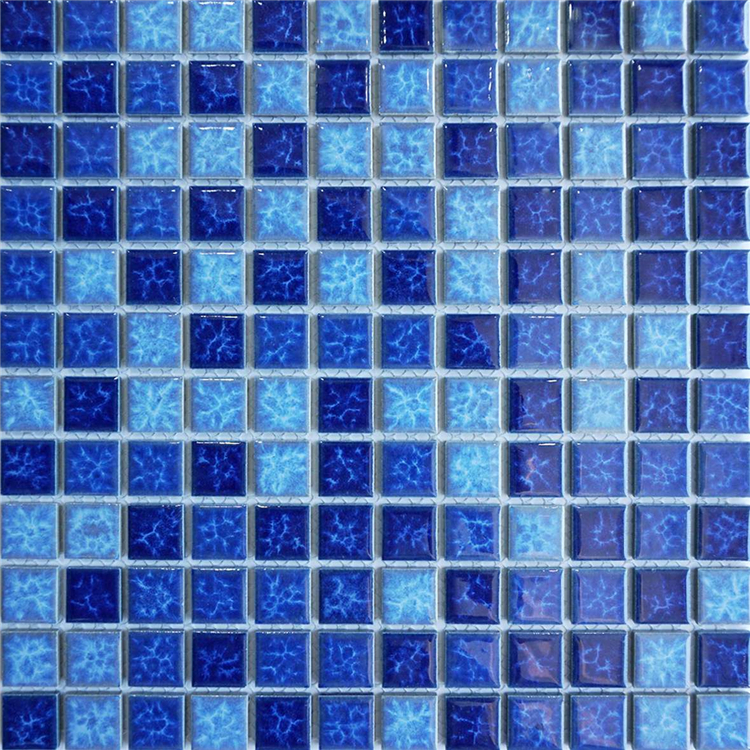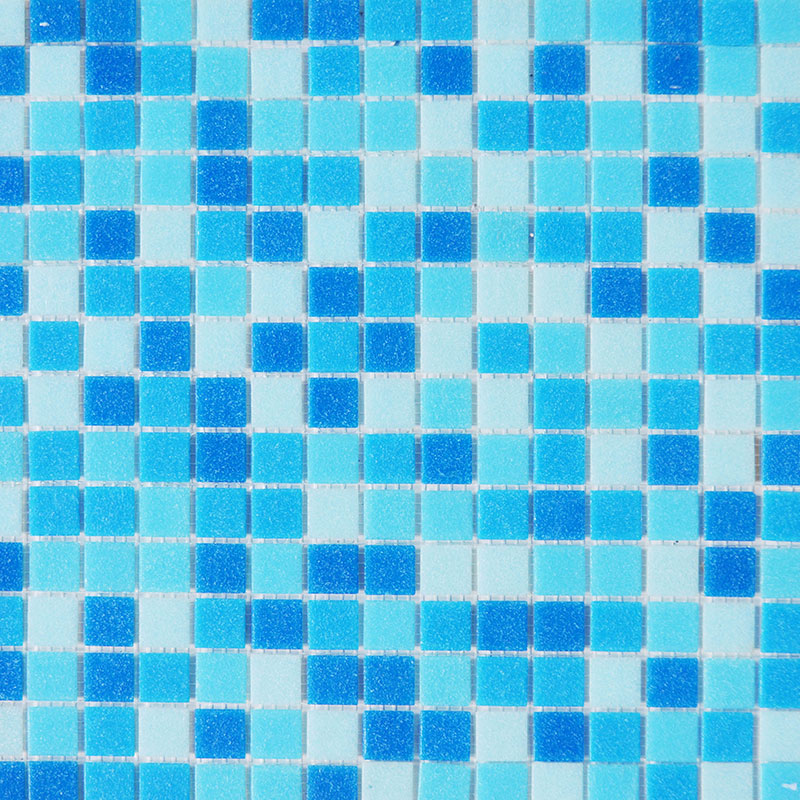What is the difference between ceramic mosaic and glass mosaic?
Ceramic mosaic and glass mosaic are both popular choices for adding a touch of elegance and color to various interior spaces. These two types of mosaics have their unique characteristics and production methods, which set them apart. In this article, we will explore the key differences between ceramic mosaic and glass mosaic.
1. Ceramic Mosaic:
Ceramic mosaic is crafted through a traditional ceramic production process. It starts with raw materials that are transformed into small powdery particles through spray granulation. These particles are then shaped using a press and fired in a kiln. Some variations of ceramic mosaic involve glazing before the final kiln firing. Depending on the design requirements, the surface may undergo polishing to achieve a shiny finish.
Ceramic mosaic boasts a timeless and traditional aesthetic. Its delicate and intricate appearance, along with its retro and elegant style, sets it apart from other decorative tiles. Some ceramic mosaics feature irregular edges that mimic the effects of erosion over time, adding a sense of history and natural beauty. Designers often incorporate ceramic mosaics as decorative elements in bathroom walls, especially as waistlines. These mosaics are available in a rich array of colors and can be combined to create intricate patterns on both walls and floors.
Key Characteristics of Ceramic Mosaic:
Versatile in creating various surface gloss effects.
High strength, toughness, and resistance to thermal shock, characteristic of ceramic products.

2. Glass Mosaic:
Glass mosaic, also known as glass mosaic tiles or cellophane skin tiles, is a form of small decorative glass known for its vibrant colors. These mosaic pieces typically come in sizes of 20mm×20mm, 30mm×30mm, or 40mm×40mm, with a thickness ranging from 4mm to 6mm. They consist of small glass pieces in various colors, and their composition includes natural minerals and glass powder.
Glass mosaic stands out as a safe and environmentally friendly building material. It exhibits resistance to acids and alkalis, corrosion, and fading. These qualities make it an excellent choice for enhancing the appearance of bathroom walls and floors. Glass mosaic offers endless possibilities for creative combinations, including concrete patterns, shade transitions, and pattern embellishments for other decorative materials like ceramic tiles.
Key Characteristics of Glass Mosaic:
Soft tones, simplicity, and elegance, enhancing visual appeal.
Chemical stability, resistance to temperature fluctuations, and minimal maintenance requirements.
Wide range of glass mosaic types, including crystal, 3D, Venus, pearlescent, cloud, and metal mosaics.

In summary, ceramic mosaic and glass mosaic each offer distinct features and aesthetics. Ceramic mosaic combines the elegance of ceramics with a rich cultural heritage, while glass mosaic shines with its vibrant colors and adaptability for creative design. Understanding these differences can help you choose the ideal mosaic for your interior decoration needs.


